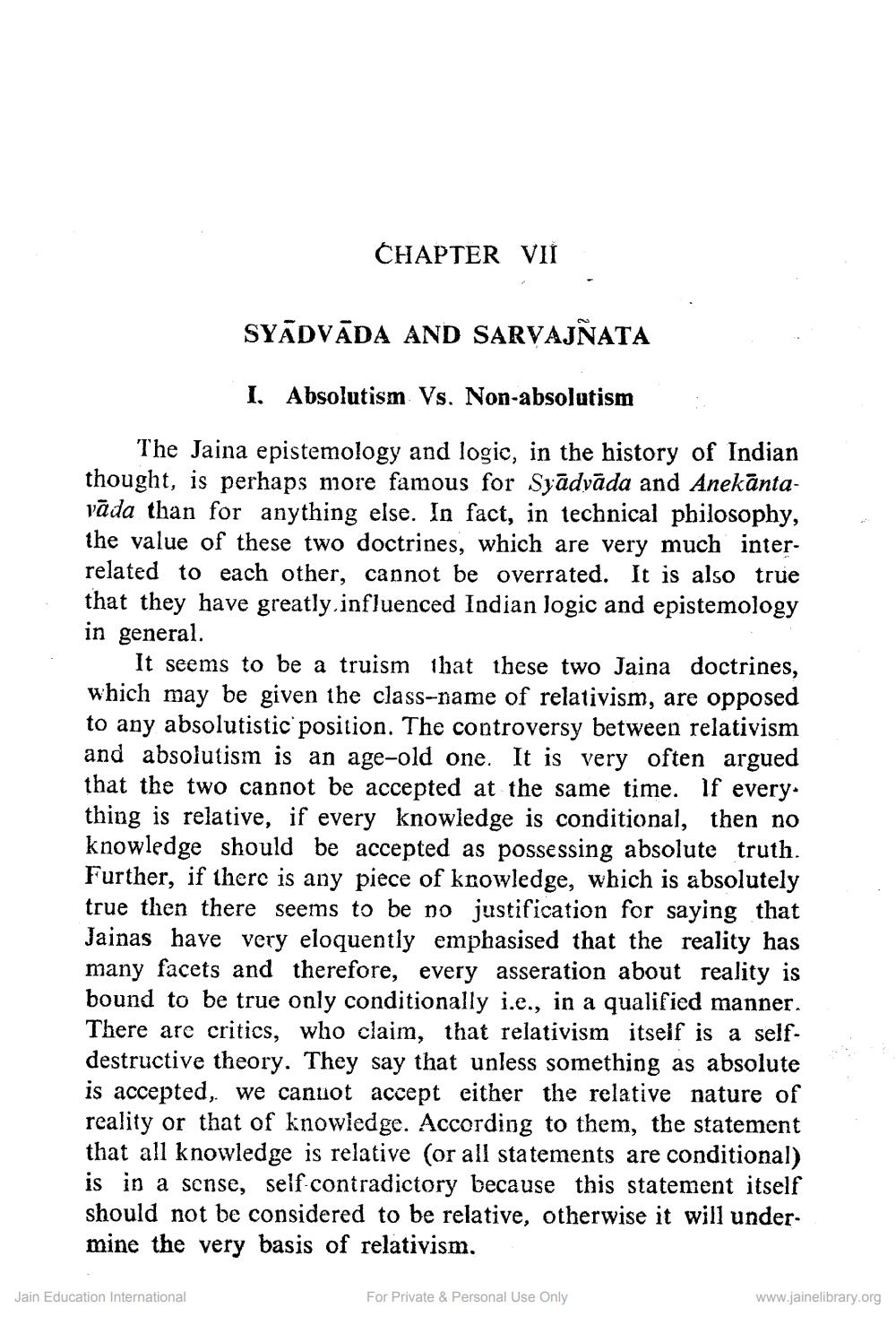________________
CHAPTER VII
SYĀDVĀDA AND SARVAJÑATA
1. Absolutism Vs. Non-absolutism
The Jaina epistemology and logic, in the history of Indian thought, is perhaps more famous for Syādvāda and Anekāntavāda than for anything else. In fact, in technical philosophy, the value of these two doctrines, which are very much interrelated to each other, cannot be overrated. It is also true that they have greatly influenced Indian logic and epistemology in general.
It seems to be a truism that these two Jaina doctrines, which may be given the class-name of relativism, are opposed to any absolutistic position. The controversy between relativism and absolutism is an age-old one. It is very often argued that the two cannot be accepted at the same time. If every. thing is relative, if every knowledge is conditional, then no knowledge should be accepted as possessing absolute truth. Further, if there is any piece of knowledge, which is absolutely true then there seems to be no justification for saying that Jainas have very eloquently emphasised that the reality has many facets and therefore, every asseration about reality is bound to be true only conditionally i.e., in a qualified manner. There are critics, who claim, that relativism itself is a selfdestructive theory. They say that unless something as absolute is accepted, we canuot accept either the relative nature of reality or that of knowledge. According to them, the statement that all knowledge is relative (or all statements are conditional) is in a sense, self-contradictory because this statement itself should not be considered to be relative, otherwise it will undermine the very basis of relativism.
Jain Education International
For Private & Personal Use Only
www.jainelibrary.org




